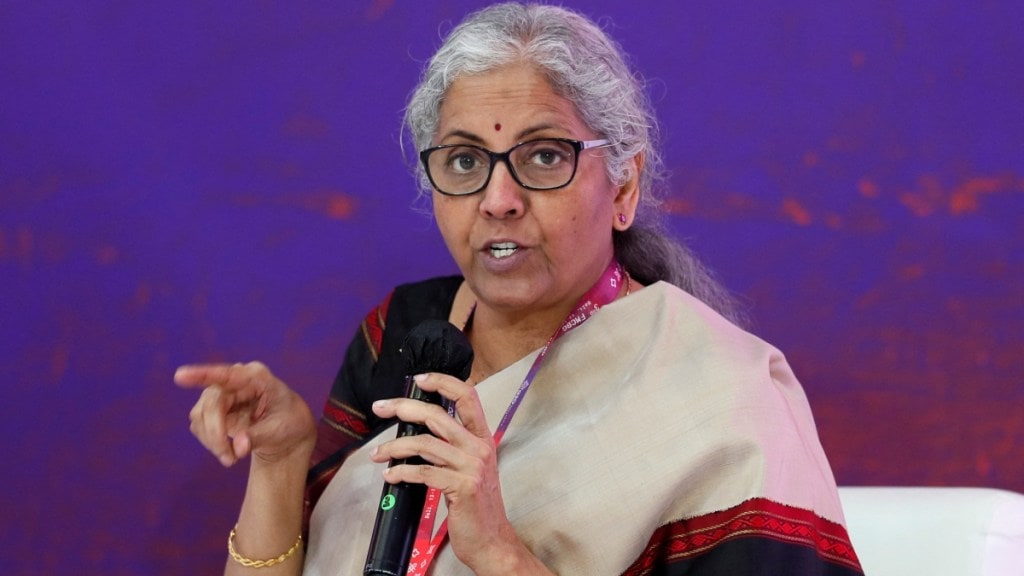Finance minister Nirmala Sitharaman is ‘hopeful’ of India’s gross domestic product (GDP) growing above 8% in the fourth quarter of FY24, substantially higher than the 5.9% growth projection made by the National Statistical Office (NSO). “The average growth in FY24 would be 8% or above,” she said on Saturday. The NSO in its second advance estimate (SAE) has projected India’s economy to grow at 7.6% in FY24.
Sitharaman mentioned at an event organised by Mint that “we can’t grow at 8% without consumption happening”, refuting comments made by experts on tepid consumption conditions. She also said a third term of the Narendra Modi government would witness major reforms at the third level of the federal structure—the panchayati raj and urban bodies—in order to encourage businesses to make investments.
“When businesses have to start, or investments have to come… they have to be grounded somewhere—at villages or periphery of a city. In those places, if elected bodies are not open, transparent, aware, or ready to be welcoming, everything we do will be on paper and not on the ground,” she said.
The minister’s comment comes as many opposition-ruled states and a section of public finance experts allege a trend of centralisation of policy-making and resource mobilisation in the Modi regime. They cite states being required to put in an increasing share to be eligible for funds under various central-sector schemes, and various reforms they are mandated to undertake for fiscal monies. Reforms of local governments could yield better development outcome only if adequate powers are delegated to them and states too are empowered, they reckon.
Sitharaman mentioned that the first-term of the Modi government focused on adopting technology in every sphere of governance, which ensured transparency in tracking the end use of every penny spent, and the second-term’s prime focus was on privatisation.
The minister further said inflation management by the government is “far, far better” than what it was 10 years prior to 2014. “We are playing in tandem with the RBI (Reserve Bank of India) in making sure inflation is well within the tolerance band,” she said. The RBI’s mandate is to keep retail inflation at 4%, with a tolerance band of 2-6%. The finance minister also mentioned that a “group of ministers” are working to contain food inflation—currently at 9.02%.
On capital markets, Sitharaman said Indian markets, even during rate volatility, have “held their own”. “The regulators will have to do their job, but Indian markets have been a lot saner. Problems of overvaluation, froth, bubbles will go on, and I am sure the regulators will handle it.”


